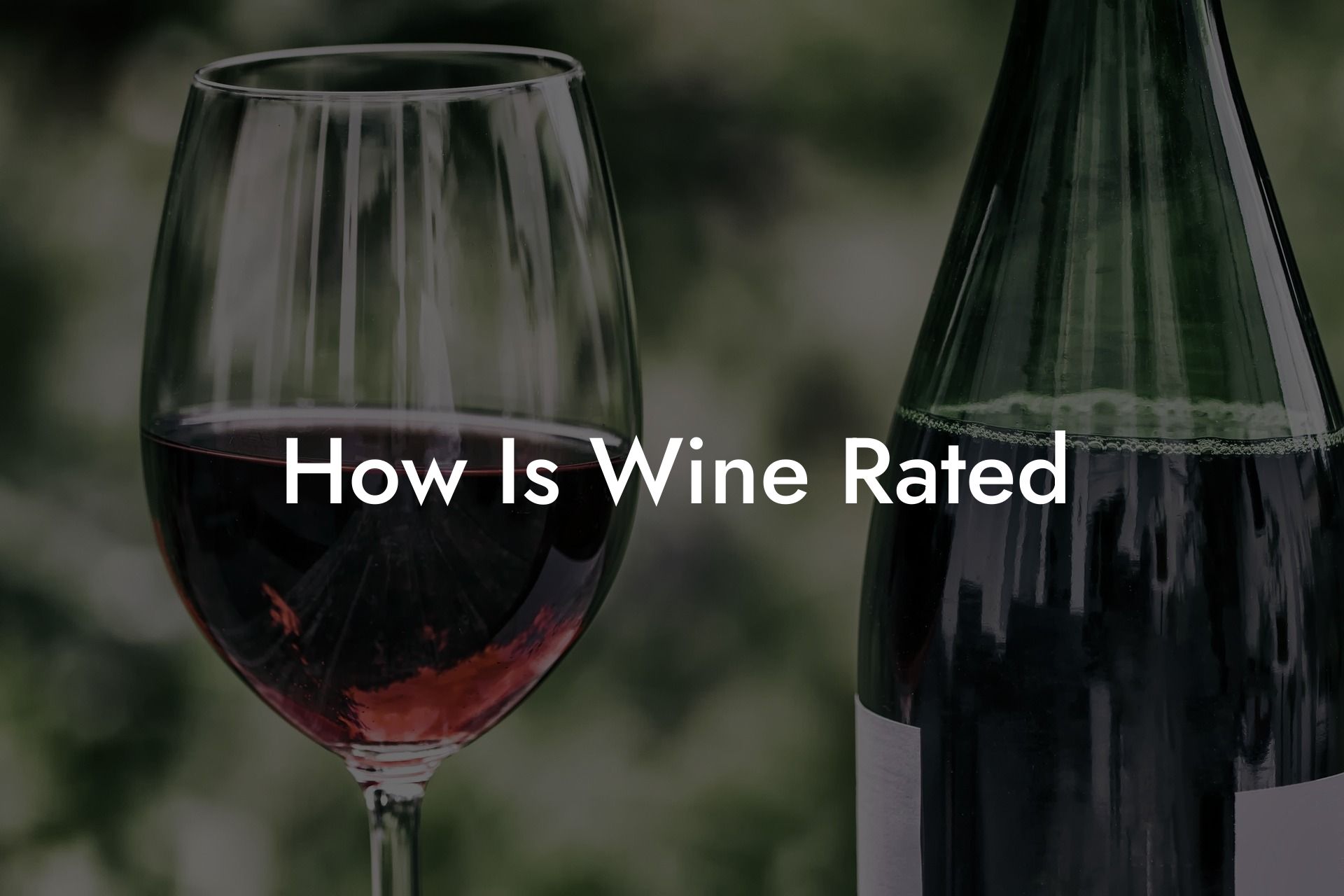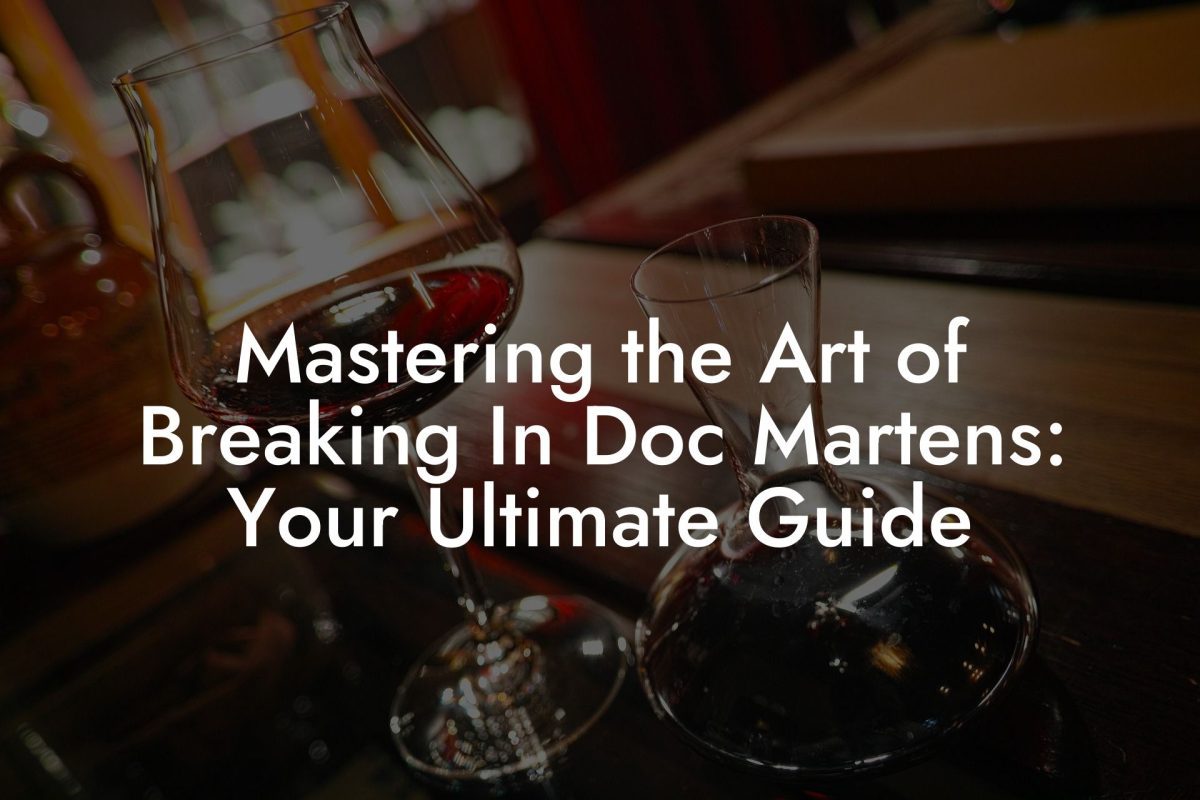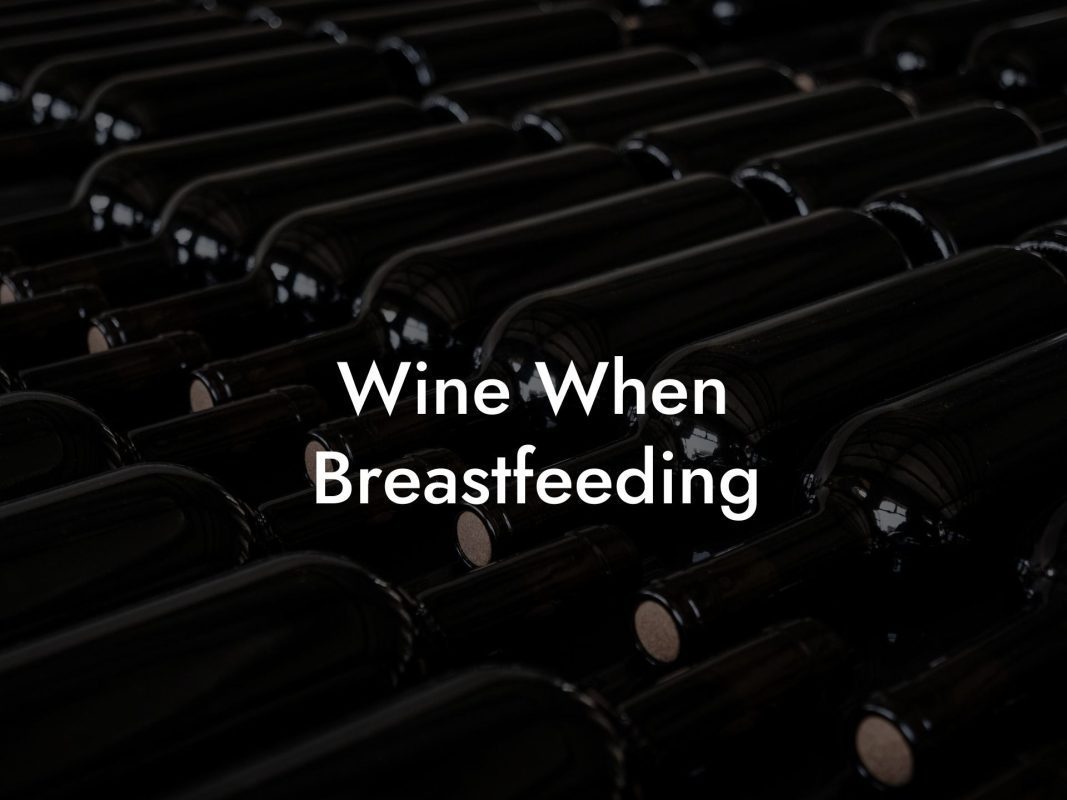Do you ever come across a wine rating and wonder what those numbers really mean? If you're new to the fascinating world of wines or simply want to understand wine ratings better, this post is for you! In this guide, we'll walk you through the various systems used to rate wines, what the numbers signify, and how you can use this information to make more confident wine choices. It's time to get your sommelier hats on and dive into the world of wine ratings!
How Is Wine Rated Table of Contents
Why Wine Ratings Matter
Wine ratings are a useful tool for consumers and the industry alike. For consumers, ratings help in making informed decisions when purchasing wine, as they provide a benchmark for quality. For the wine industry, good ratings can boost sales, as a high score from a well-known critic can greatly influence consumer perception.
Popular Wine Rating Systems
There are several wine rating systems used by critics and publications globally, with the 100-point scale being the most commonly used. In addition, there are some alternatives out there. Here's a brief overview of the popular wine rating systems:
Do You Want to Win a Free Bottle of Wine?
Don't miss out on the opportunity to win a free bottle of wine every week.
Enter our weekly prize draw today!
1. The 100-Point Scale
Popularized by American wine critic, Robert Parker, the 100-point scale is now the most widely accepted rating system for wines. It grades wines on a scale from 50 to 100, with higher scores indicating better quality. The scores are based on factors such as taste, aroma, appearance, and overall impression. Here's a quick breakdown of the scores:
- 96-100: Extraordinary, a classic wine
- 90-95: Outstanding, exceptional wine
- 85-89: Very good to excellent, worth seeking out
- 80-84: Good, solid wine
- 75-79: Mediocre, not recommended
- 70-74: Below average, flawed
- 50-69: Not recommended, unacceptable
2. The 20-Point Scale
The 20-point scale, commonly used by wine critics like Jancis Robinson, rates wines on a scale from 1 to 20. The scores are based on criteria such as colour, bouquet, taste, and overall quality. Higher scores represent better wines. Here's a rough translation from the 20-point scale to the 100-point scale:
- 20: 100
- 19: 97-99
- 18: 94-96
- 17: 90-93
- 16: 86-89
- 15: 82-85
3. The Five-Star Scale
Some wine publications, magazines, and critics prefer to use a star-based system, rating wines from one to five stars. Generally, a five-star wine is considered excellent, while a one-star wine is of poor quality.
Understanding Tasting Notes
Wine ratings are often accompanied by tasting notes, which provide more detailed descriptions of the wine's sensory qualities. Typical descriptors include:
- Aroma: The wine's smell, including fruit, floral, herbal, and other tertiary characteristics
- Taste: The wine's flavours, such as fruity, spicy, earthy, or tannic
- Body: The wine's weight and fullness on the palate
- Finish: The lingering aftertaste or overall impression of the wine
How Is Wine Rated Example:
Suppose you're reading a review for a Chardonnay with a rating of 92, according to the 100-point scale. The accompanying tasting notes might read something like:
"Aroma: Ripe green apple, citrus, and hints of oak
Taste: Crisp acidity, creamy texture, with apple and citrus flavours
Body: Medium-bodied
Finish: Long, refreshing finish"
Now that you're equipped with the knowledge of how wines are rated, you can make more confident choices when purchasing that next bottle. Remember, though, that wine tasting is a subjective experience, and it's crucial to not rely solely on ratings. Don't be afraid to trust your own taste buds and explore the vibrant world of wine! Be sure to share this article with your fellow wine enthusiasts, and check out the rest of the guides available on Black Wine Club for more wine-loving goodness. Cheers!
Do You Want to Win a Free Bottle of Wine?
Don't miss out on the opportunity to win a free bottle of wine every week.
Enter our weekly prize draw today!












